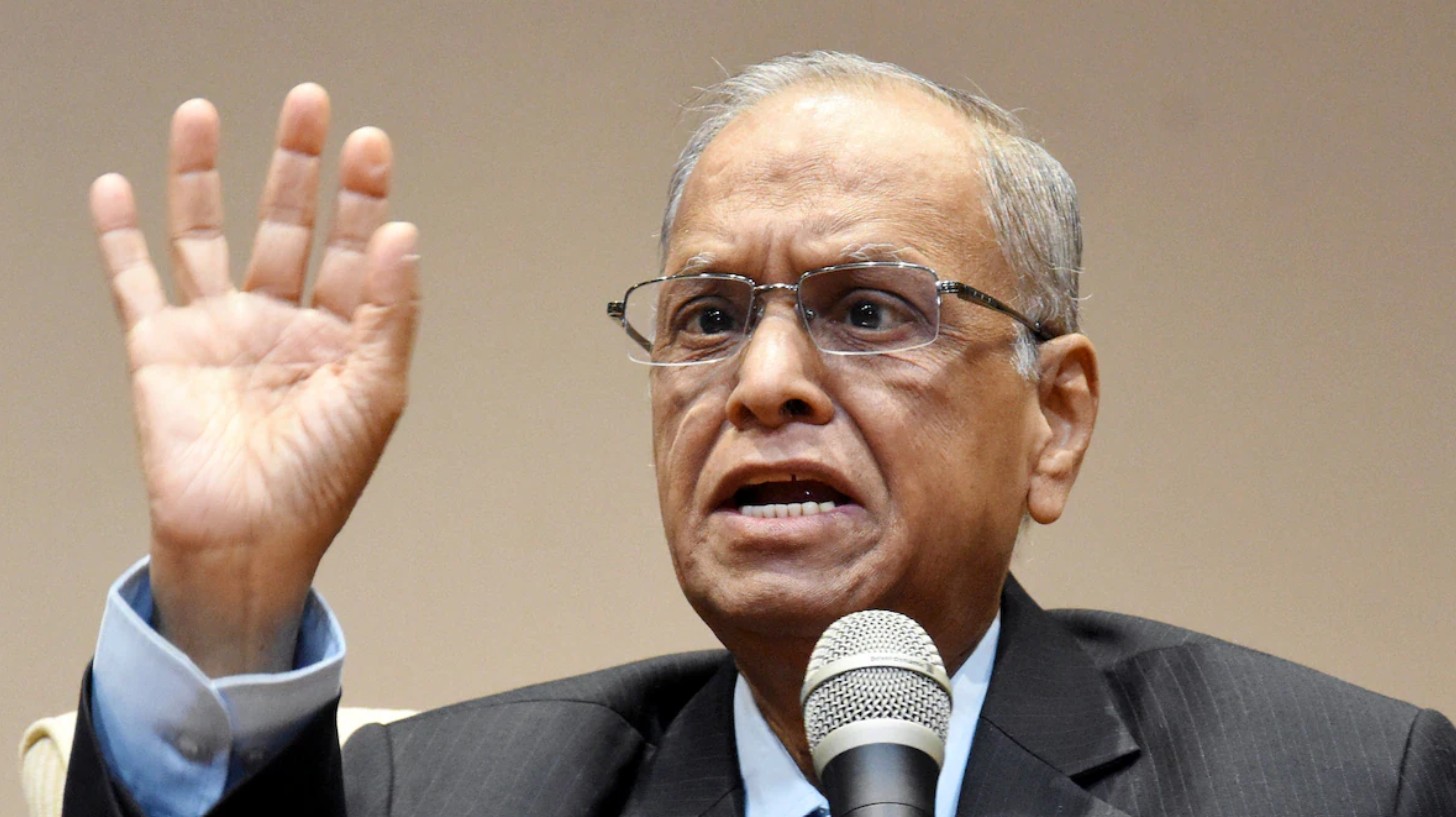Narayana Murthy Clarifies 70-Hour Workweek Statement: It’s a Personal Choice, Not a Mandate
Narayana Murthy Clarifies 70-Hour Workweek Statement: It’s a Personal Choice, Not a Mandate
Narayana Murthy, co-founder of Infosys, recently sparked further debate with his comments on the concept of a 70-hour workweek. His remarks, made during the annual ‘Kilachand Memorial Lecture’ at the IMC, have garnered significant attention, especially after his original statements advocating for longer work hours for the youth of India.
Narayana Murthy responded to questions about work-life balance, reiterating that while no one should be compelled to work long hours, individuals must reflect on their own professional commitments and the potential need for extended hours. Reflecting on his own experience, he shared that during his tenure at Infosys, he consistently worked over 70 hours per week, starting his day at 6:30 AM and leaving the office around 8:30 PM. According to Narayana Murthy, such matters should not be part of a debate but rather be a subject of introspection. He emphasized that no one can dictate to others how many hours they should work, stressing that each person must decide what works best for them.
These remarks come after an October 2023 statement by Narayana Murthy, where he suggested that the younger generation in India should be willing to work 70-hour weeks to help the country compete with rapidly growing economies like China and Japan. In November 2024, he reaffirmed his stance, expressing that he had no regrets about his own work habits, which included fourteen-hour days and working six and a half days a week until he retired. He further stated that he doesn’t believe in the concept of work-life balance, a viewpoint that has stirred considerable discussion.
The ongoing debate over work hours gained momentum when S.N. Subrahmanyan, the Chairman of Larsen & Toubro, recently suggested that employees should work 90-hour weeks, even on Sundays. His controversial comment, which was widely circulated in a Reddit video, questioned the importance of family time, stating, “How long can you stare at your wife?” Subrahmanyan expressed regret that he could not mandate Sunday work, as he personally works on Sundays. His comments, which seem to endorse a work-centric lifestyle, have ignited further controversy, with critics questioning the sustainability of such expectations.
The debate has expanded to include other prominent business leaders. Rajiv Bajaj, Managing Director of Bajaj Auto, responded by challenging the idea of measuring work in terms of hours, calling it an outdated and regressive concept. He suggested that any initiative to extend work hours should begin with senior leadership and serve as a proof of concept before being implemented more widely.
Billionaire industrialist Gautam Adani also weighed in on the matter, offering a perspective that rejects imposing one’s work-life balance philosophy on others. He stated that while individuals have their own approaches to balancing work and personal life, these should not be dictated by others.
The remarks from Narayana Murthy, Subrahmanyan, and other industrialists have sparked intense public discussion, particularly regarding the impact of long work hours on employee well-being and personal life. While some business leaders argue that long hours are necessary for personal success and national growth, others have raised concerns about the long-term effects on mental health, family life, and overall employee satisfaction.
For many in the workforce, the debate underscores a growing discomfort with the increasingly demanding expectations placed on employees. There is a sense that the drive for productivity and success may come at the expense of individuals’ personal lives, and questions are being raised about whether such a work culture is sustainable or healthy for the broader population.
Narayana Murthy’s stance
As the conversation continues to evolve, it seems clear that the topic of work-life balance remains a divisive issue, with strong opinions on both sides. Narayana Murthy’s stance, while reflecting his own work ethic and experiences, continues to resonate with some while causing concern among others who believe that a more balanced approach is essential for a healthier and more sustainable work environment. The larger question of how businesses can foster productivity while respecting employees’ personal lives will likely remain a critical issue for years to come.
Also Read-
Samsung Galaxy S25 Pre-Order Offer- Claim Your $50 Credit Before It Ends
